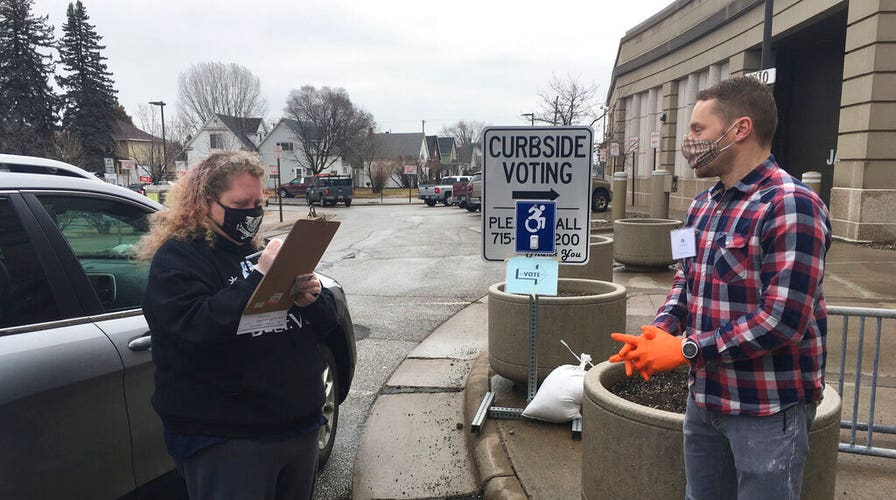Fox News Flash top headlines for August 11
Fox News Flash top headlines are here. Check out what's clicking on Foxnews.com.
A Minnesota court issued a ruling Tuesday that blocks a Republican effort to deny ballot collection and voter assistance known as ballot harvesting in the state, saying their effort to block the process was motivated by politics.
The decision came on the day of Minnesota’s primary.
The GOP had sued in Minnesota to stay a temporary injunction that would do away with Minnesota’s ballot harvesting ban and a voter protection law.
Ballot harvesting laws forbid anyone from collecting absentee ballots. Republicans raise concerns that anyone doing so could influence who those filling them out vote for.
The Democratic Senatorial Campaign Committee (DSCC) and the Democratic Congressional Campaign Committee (DCCC) had sued to block the law, which makes it a crime for anyone in Minnesota to help more than three people vote. Democrats have claimed easing voter laws will boost voter turnout.
In March, the Republican National Committee and Minnesota Republican Party joined the suit to “intervene as defendants.”
“According to the Republican Committees, because the temporary injunction allows the Democratic Committees to 'assist' its voters, it will disadvantage the Republican Committees,” the court wrote in its decision, interpreting the GOP argument.
“In other words, because of the temporary injunction, more voters might have an opportunity to vote for a candidate from the opposing party, which presents harm,” the court continued. “More voters having the opportunity to vote for their preferred candidate does not, however, present a convincing basis for harm.”
In 2018, Democrats steamrolled Republicans after a similar change in election law in California, claiming all but seven of the Golden State’s 53 House seats.
Despite holding substantial leads on Election Day, many Republican candidates in California saw their advantage shrink, and then disappear, as late-arriving Democratic votes were counted in the weeks following the election. While no hard evidence is available, many observers point to the Democrats’ use of “ballot harvesting” as a key to their success in the elections.
SQUAD MEMBER OMAR IN PRIMARY SPOTLIGHT AS 5 STATES HOLD CONTESTS TUESDAY
“Anecdotally there was a lot of evidence that ballot harvesting was going on,” Neal Kelley, the registrar for voters in Southern California’s Orange County, told Fox News in 2018.
In Orange County – once seen as a Republican stronghold in the state– every House seat went to a Democrat after an unprecedented “250,000” vote-by-mail drop-offs were counted, the San Francisco Chronicle reported.
“People were carrying in stacks of 100 and 200 of them. We had had multiple people calling to ask if these people were allowed to do this,” Kelley said.
In 2016, California Gov. Jerry Brown had signed into law AB1921, which legalized the so-called practice of “ballot harvesting.” Previously, only a family member or someone living in the same household was permitted to drop off mail ballots for a voter, but the new allowed anyone – including political operatives – to collect and return them for a voter.
“We were only down 26 seats (nationally) the night of the election and three weeks later, we lost basically every California race,” outgoing House Speaker Paul Ryan, R-Wis., told the Washington Post. “Point being, when you have candidates that win the absentee ballot vote, win the day of the vote, and then lose three weeks later because of provisionals, that’s really bizarre.”
Ryan added: “When you win the absentee ballots and you win the in-person vote, where I come from, you win the election … I’m not saying there’s anything nefarious about it, because I just don’t know, but we believed we were up about six seats in California the night of the election, now I think we lost just about every single one of those.”
While Ryan may have been taken off guard by the system in California, the state’s GOP was not.
CLICK HERE TO GET THE FOX NEWS APP
“To say we were caught flat-footed by this is just not true,” Matt Fleming, a spokesman for the California GOP, told Fox News. “We were well aware of this, we even did it ourselves, we pay attention to election laws.”
Fox News' Andrew O'Reilly contributed to this report.





